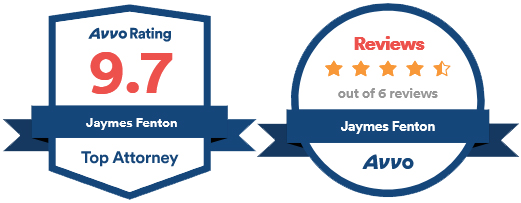How Wisconsin Handles Probation Violations
 Probation is a critical component of Wisconsin’s justice system, offering individuals an alternative to incarceration. However, understanding the rights, responsibilities, and consequences surrounding probation is vital for anyone navigating this legal path. Here’s an in-depth look at how Wisconsin handles probation violations and what you need to know if you or a loved one faces such a situation.
Probation is a critical component of Wisconsin’s justice system, offering individuals an alternative to incarceration. However, understanding the rights, responsibilities, and consequences surrounding probation is vital for anyone navigating this legal path. Here’s an in-depth look at how Wisconsin handles probation violations and what you need to know if you or a loved one faces such a situation.
Jump to article sections:
- What Is Probation in Wisconsin?
- Common Probation Violations in Wisconsin
- The Legal Process for Handling Probation Violations
- Potential Consequences of a Probation Violation
- How Wisconsin Courts Evaluate Probation Violations
- Can Probation Be Revoked in Wisconsin?
- The Role of a Criminal Defense Lawyer in Probation Violation Cases
- Alternatives to Jail After a Probation Violation
- Why Choosing the Right Lawyer Matters for Your Case
1. What Is Probation in Wisconsin?
Probation in Wisconsin serves as an alternative to jail or prison, allowing individuals to integrate back into society under specific terms set by the court. Instead of serving time behind bars, the person is monitored and must adhere to a variety of conditions.
Probation conditions vary based on the nature of the offense and the agreement with the court, but they typically include requirements like regular check-ins with a probation officer, attending rehabilitation programs, avoiding illegal substances, and refraining from committing new crimes.
Probation is designed not just as a form of punishment but also as an opportunity for rehabilitation and reintegration into the community. Read more in our guide “Understanding the Basics of Probation.”
2. Common Probation Violations in Wisconsin
Probation comes with responsibilities, and failing to meet them can lead to legal consequences. Some of the most common probation violations in Wisconsin include:
- Missed appointments with a probation officer: Regular meetings with a probation officer are a fundamental condition, and missing them is considered a violation.
- Failure to pay fines, fees, or restitution: Fulfilling financial obligations set by the court is necessary, and nonpayment can result in penalties.
- Failing drug or alcohol tests: Many probation terms require sobriety. Testing positive for drugs or alcohol is a serious violation especially when it’s a DUI probation violation because it can result in new charges.
- Committing new crimes while on probation: Being charged with or convicted of a new offense is one of the most severe violations.
Understanding and adhering to these conditions is crucial to avoid complications during probation.
3. The Legal Process for Handling Probation Violations
The process for addressing a probation violation begins the moment the violation is reported. This usually leads to a probation violation hearing. Here’s what you can expect:
- Notification of a Violation: A probation officer will report the suspected violation, which might result in an arrest or a summons to appear in court.
- Probation Revocation Hearing: This is where the court determines whether a violation occurred and what the consequences should be. At this stage, the probationer has the right to present evidence or testimony in their defense.
- Judge’s Decision: Based on the evidence, the judge decides if probation should be revoked, modified, or continued with additional conditions.
Having legal representation during this process can dramatically impact the outcome of the case.
4. Potential Consequences of a Probation Violation
Probation violations can lead to a range of outcomes, depending on the severity and nature of the infraction. The consequences may include:
- Minor Violations: These typically involve a warning or additional restrictions rather than jail time.
- Major Violations: Serious breaches, such as committing a new crime, can lead to probation revocation and incarceration.
Beyond legal penalties, probation violations can affect your personal life. For instance, losing probation eligibility may disrupt employment, strain relationships, and restrict access to housing opportunities.
5. How Wisconsin Courts Evaluate Probation Violations
Wisconsin courts thoroughly evaluate each probation violation on a case-by-case basis. Judges consider several factors:
- Severity of the violation: Was the incident minor, like missing a single meeting, or more serious, like failing multiple drug tests?
- Intent: Did the probationer intentionally break the rules, or were there mitigating circumstances?
- History: Past compliance or previous violations can weigh heavily on the court’s decision.
For a violation to lead to probation revocation, there must be evidence establishing probable cause. This careful evaluation helps ensure a fair outcome.
6. Can Probation Be Revoked in Wisconsin?
Yes, probation can be revoked in Wisconsin if the court finds sufficient grounds to do so. Common grounds include committing a new crime, repeatedly failing to meet probation conditions, or demonstrating unwillingness to cooperate with rehabilitation efforts.
It’s important to distinguish between probation revocation and modification. Not all violations automatically lead to revocation. A court may adjust the terms of probation by imposing stricter conditions instead of sending the individual to jail.
7. The Role of a Criminal Defense Lawyer in Probation Violation Cases
Having a criminal defense lawyer is essential when dealing with probation violations. Here’s how they can help:
- Case Evaluation: Understanding the strengths and weaknesses of the case is crucial for preparing a solid defense.
- Negotiation: Attorneys can work with the court to propose alternatives to revocation, such as stricter probation terms or community service.
- Representation: A lawyer advocates for your interests during hearings, ensuring your voice is heard.
An experienced attorney can make a significant difference in how your case is resolved. They can also help you reduce the risk of violating probation by providing valuable guidance and resources.
8. Alternatives to Jail After a Probation Violation
 Despite a violation, jail isn’t always the only outcome. Wisconsin offers alternatives to incarceration, such as:
Despite a violation, jail isn’t always the only outcome. Wisconsin offers alternatives to incarceration, such as:
- Electronic monitoring: Using ankle bracelets or other tracking systems to ensure compliance.
- Community service: Completing court-approved work to offset violations.
- Counseling or rehabilitation programs: Attending therapy to address the root causes of behaviors leading to violations.
- Restorative justice programs: Focused on repairing harm and fostering reconciliation.
These alternatives aim to correct behavior while keeping individuals out of jail whenever possible.
9. Why Choosing the Right Lawyer Matters for Your Case
Facing a probation violation can be overwhelming, but having the right lawyer by your side makes a world of difference. Here’s what to consider when choosing a defense attorney:
- What’s their experience in handling probation violation cases? Make sure the lawyer understands Wisconsin’s laws and court system.
- Do they offer personalized support? A good attorney will tailor their approach to your unique circumstances.
At Fenton Law in Milwaukee, our experienced lawyers are passionate about defending clients facing probation violations. We work closely with you to develop a strong defense and advocate for your best interests in court. Don’t hesitate to reach out today for a free consultation with one of our trusted Milwaukee criminal defense attorneys who will fight for you.

By Attorney Jay Fenton, Owner of Fenton Law Office
Jay Fenton is a top-rated criminal defense attorney in Milwaukee who goes above and beyond for his clients. He has successfully secured favorable outcomes in countless cases, from negotiating plea agreements to filing pre-trial motions and managing complex appeals. Attorney Fenton also has had tremendous success achieving not-guilty verdicts at trial. His dedication and aggressiveness make him one of the best attorneys around.




